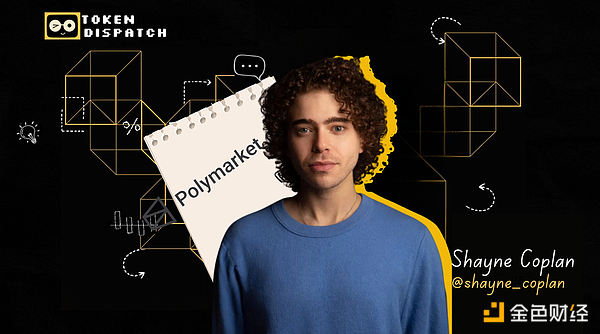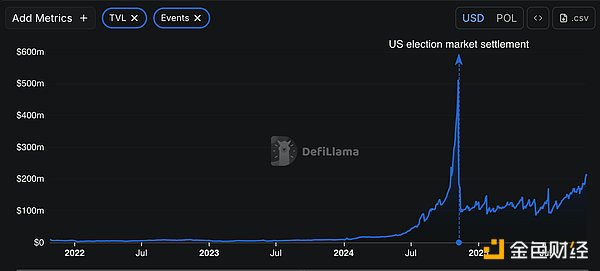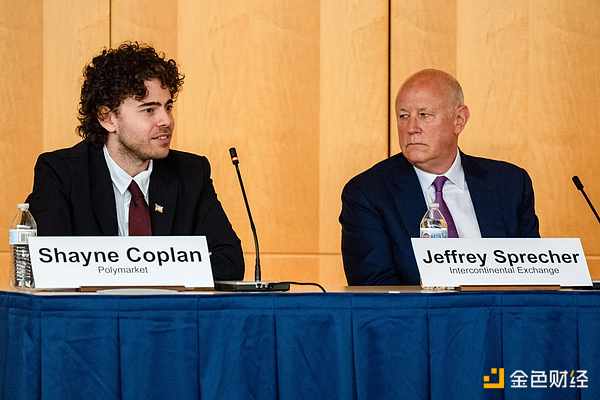By Thejaswini, Source: TokenDispatch
When you have nothing, you bet on the truth.
June 2020: A penniless 21-year-old launches a prediction platform from his bathroom during the pandemic.
November 2024: FBI agents raid his apartment, confiscate his phone, but leave without charging him.
October 2025: The owner of the New York Stock Exchange invests $2 billion in his company.
This is the trajectory of Shayne Coplan's life in five years. From inventorying what he could sell for rent in his Lower East Side apartment to becoming the youngest self-made billionaire tracked by Bloomberg.
How did someone with nothing build something regulators wanted to destroy?
How did a platform banned in its home country become attractive to Wall Street's most powerful institutions?
These details matter because they reveal the actual workings of the impossible. That's why Coplan's story deserves more than just a timeline, and that's exactly what this article will provide.

White Paper Moment
2019. Shayne Coplan was tired of the crypto industry.
Two and a half years after dropping out of New York University, his entrepreneurial project had gone nowhere. The promised revolution had turned into what he called a "crypto scam"—a project designed to extract money rather than create value.
Broken and frustrated, he watched as the industry he once believed in turned into a casino for scammers. So he stopped traveling and started reading. Academic papers, esoteric research. Specifically, economist Robin Hanson's work on prediction markets. The theory posits that markets aggregate information better than experts, polls, or any traditional forecasting method. When people back their beliefs with money, the collective wisdom reveals the truth. Prediction markets have proven this in academic settings. The Iowa Electronic Market has consistently outperformed traditional polls since 1988. But these platforms remain niche, academic, and inaccessible to the average person. Coplan saw a gap. "The idea was too good to be confined to a white paper," he wrote in his article. He spent a year researching how prediction markets work, why they haven't scaled, and what conditions would be needed for mass adoption. He studied for a year, his bank account dwindling. Most people would go get a job. Then, COVID-19 shut down the world. Bathroom Office March 2020. Global lockdown. People were stuck at home. Glued to their screens. Desperate to know what would happen next. Would schools reopen? Would there be a vaccine? How long would this last? Traditional institutions like governments, health organizations, and the media struggled to provide reliable answers. Everyone had an opinion. No one was sure. Coplan saw this moment clearly. At 21, running out of money and still with nothing to show for it two and a half years after dropping out of school, he set out to build. Starting in what he later described as a "makeshift bathroom office" in his Lower East Side apartment. In June 2020, Polymarket launched. The platform is simple. Users stake cryptocurrency on real-world outcomes. Each question becomes a market. You buy shares representing a "yes" or "no" answer. If your prediction is correct, you pay $1 per share; if it's wrong, you get nothing. Market prices reflect collective probabilities. If one share trades for 65 cents, it means the crowd believes there's a 65% chance the event will occur. Pure information. No experts. No hype. Just belief backed by money. Building a prediction market requires solving technical problems around data feeds, market settlement, and user experience. It requires building trust among strangers, allowing them to make predictions on everything from elections to pop culture. It also requires navigating a regulatory gray area. To some regulators, prediction markets look like gambling, to others like financial derivatives. Their legal status is unclear. Coplan's approach? Build first, ask for permission later. The strategy worked for two years.
2022. Polymarket was attracting attention.
Trading volume was growing. Users were predicting everything from Oscar winners to economic indicators. The platform was gaining credibility as an alternative to traditional forecasting.
Then the Commodity Futures Trading Commission came knocking.
The charges were: offering illegal trading contracts and operating as an unregistered exchange. The settlement: $1.4 million, without admitting or denying wrongdoing.
More importantly: Polymarket agreed to block all US users.
This restriction created a paradox: the platform could operate globally, but not in the US. International users could make predictions about the US election, but US citizens couldn't participate in markets about their own country's politics.
Regulators suspected the platform was still serving US users.
2024. The presidential election is approaching.
Polymarket has become impossible to ignore. Users have bet over $3.5 billion on the election outcome. When traditional polls showed a close race, the platform consistently showed Trump leading.
One French trader bet tens of millions of dollars on a Trump victory. When Trump won, the trader reportedly made $85 million.
The platform's predictions have proven more accurate than traditional polls.

Then came the raid.
November 2024. A week after Election Day.
FBI agents arrived at Coplan’s New York City apartment before dawn. They seized his cell phone and electronic devices. Coplan, then 26, was not arrested or charged. His response on X was, "New phone, which one are you?" Polymarket issued a statement: "Clearly political retaliation by the outgoing administration." The Department of Justice launched an investigation. The CFTC also launched an investigation. The platform, which had just demonstrated its predictive power, now faced scrutiny from multiple federal agencies. Coplan continued to build. But in the United States, the situation is changing rapidly. The investigation that began under the Biden administration ended under the Trump administration. In July 2025, both the Department of Justice and the CFTC officially closed their investigations. No charges were filed. No additional penalties were imposed. That same month, Polymarket acquired QCEX for $112 million. QCEX is a CFTC-licensed exchange and clearing house. This acquisition provides what Coplan has been striving for since the 2022 settlement: a legal framework for operating in the United States. August 2025. Donald Trump Jr., son of US President Trump, joins Polymarket as an advisor through his partnership with the investment firm 1789 Capital. The company, once raided under one administration, now has members of the next president's family as advisors. September 2025. Polymarket's parent company, Blockratex, filed documents with the SEC mentioning "other warrants," a common term used by crypto projects before token launches. Coplan launched "$POLY" on X, listing it alongside Bitcoin and Ethereum. The implication was clear: the token was coming. October 2025. The long-awaited announcement. Intercontinental Exchange, owner of the New York Stock Exchange, invested $2 billion in Polymarket at an $8 billion pre-money valuation. ICE CEO Jeffrey Sprecher is married to Kelly Loeffler, a former senator, Small Business Administration administrator, and member of the Trump administration. The deal includes ICE distributing Polymarket data globally and collaborating on financial tokenization projects.
What started as a bathroom project by a penniless college dropout has become part of the Wall Street establishment.
At 27, Shayne Coplan has joined the Bloomberg Billionaires Index as the youngest self-made billionaire.

What's Actually Being Built
Polymarket solves a problem that previous prediction markets couldn't.
Earlier platforms, like Intrade, have proven the concept works. Before shutting down in 2013, Intrade successfully predicted the 2008 and 2012 elections. But these predecessors remained niche. They required understanding complex mechanisms and felt academic, rather than mainstream. Polymarket makes prediction markets feel like entertainment. The interface is simple, and the questions range from the serious (Will the Federal Reserve cut interest rates?) to the trivial (Will Taylor Swift and Travis Kylce get engaged in 2025?). This mix creates engagement. More importantly, the platform capitalizes on changes in people's information consumption habits. Traditional media tells you what to think. Polls tell you what others are thinking. Polymarket tells you what people believe, and believe it enough to bet on it. This distinction is important for users who are increasingly skeptical of traditional institutions. The platform now has over 1.3 million users and approximately $20 billion in trading volume, with monthly trading exceeding $1 billion. The 2024 elections demonstrated the platform's potential. When mainstream polls showed a close race, Polymarket users consistently favored Trump, and their predictions proved accurate. Whether the platform aggregates genuine wisdom or simply reflects the demographics of crypto users betting on politics remains debatable. But the results validate the core proposition of prediction markets: beliefs backed by money tend to reveal the truth. Of course, as a prediction market, Polymarket occasionally has to answer truly philosophical questions, like "What is a suit?" In June 2025, bettors placed nearly $79 million on whether Ukrainian President Volodymyr Zelensky would be wearing a suit by July. When photos emerged of Zelensky attending a NATO meeting wearing a matching black jacket and trousers, paired with a collared shirt (but also sneakers), the internet went wild. Is it still a suit if the shoes aren't right? If the cut is casual, does the matching fabric count? Fashion commentator Derek Guy, brought in as an expert, helpfully declared Zelensky's outfit "both a suit and not a suit," but that solved absolutely nothing. The market results were disputed twice. This is what happens when you create trustless, decentralized verification for real-world events: ultimately, you need a blockchain oracle to adjudicate the semantics of sartorialism, and $79 million is on the line. What's next? 27-year-old Shayne Coplan has already validated his belief that prediction markets matter. Hints about the token suggest the next phase is beginning. The $POLY token will complete Polymarket's evolution from an experimental prediction market to a full-fledged crypto ecosystem. Token holders may gain governance rights, fee sharing, and special platform access. The specifics remain unclear. But the trajectory is clear. The token strategy carries risks. It could attract new regulatory scrutiny just as Polymarket is gaining legitimacy. It could alienate users who view the platform as a prediction tool rather than a crypto project. But it also makes strategic sense. Crypto projects issue tokens to distribute ownership, incentivize participation, and build alignment between the platform and its users. If prediction markets represent the future of information discovery, tokens could accelerate adoption while rewarding early believers. Coplan's immediate plans are modest. On Sundays, he watches American football and tests the new Polymarket US app. The work continues. The predictions keep coming. The market continues to reveal what people actually believe. From bathroom office to $9 billion valuation, it took five years. The next five years will reveal whether prediction markets can become something bigger—a new infrastructure for collective intelligence, a marketplace for truth itself. For now, the 27-year-old billionaire is focused on execution. The bathroom office is a thing of the past. The financial uncertainty has been resolved. The regulatory battles have subsided. What remains is the original belief that drove him to start: that the idea of prediction markets was too good to exist only in a white paper. The market has proven him right.
Time will tell what happens next.
 Anais
Anais






